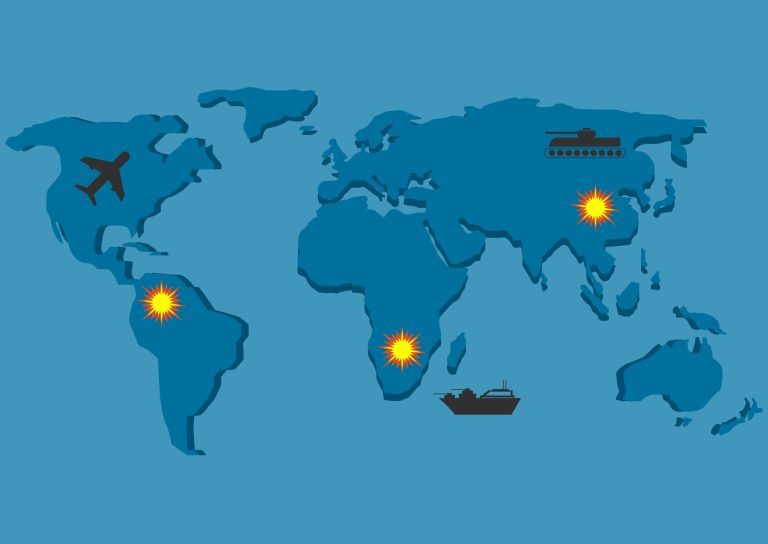The global economy could face losses of $14.5 trillion over five years due to a potential geopolitical conflict that disrupts supply chains, according to a hypothetical scenario outlined by Lloyd’s of London.
The insurance and reinsurance marketplace highlighted the severe economic risks posed by such conflicts, particularly for industries reliant on international trade routes.
Major trade route disruptions among top global risks
Lloyd’s scenario suggests that the closure of major trade routes due to a geopolitical conflict is one of the most significant risks to global economic stability.
Currently, over 80% of the world’s imports and exports – around 11 billion tons of goods – are transported by sea at any given time.
The hypothetical conflict scenario shows that if key shipping lanes were blocked, global supply chains could be thrown into disarray, causing widespread economic harm.
Severe damage to infrastructure in conflict regions, enforcement of sanctions, and compromised shipping lines would necessitate a costly realignment of global trade networks.
This would have a far-reaching impact on businesses worldwide, especially those heavily dependent on international supply chains.
Europe could lose $3.4 trillion in a conflict scenario
The economic losses would vary by region, depending on their reliance on international trade and involvement in the conflict.
Europe, for example, could lose up to $3.4 trillion over five years due to its heavy dependence on industrial supplies like semiconductors for manufacturing.
The scenario highlights the vulnerability of industries tied to global supply chains, where delays or losses could lead to significant financial setbacks.
While conflicts in the 21st century have not yet reached the scale of catastrophic global trade disruptions, Lloyd’s warns that continued stability is not guaranteed.
Climate change, political extremism, cyberattacks, and new civil conflicts are increasing pressure on global resources and trade networks.
Lessons from the Russia-Ukraine conflict
Lloyd’s report draws parallels to the disruptions caused by Russia’s invasion of Ukraine, which highlighted the fragility of global trade routes.
The war severely disrupted the production of key commodities such as wheat and sunflower oil, of which Russia and Ukraine previously accounted for 30% and 55% of global exports, respectively.
It caused widespread disruptions to food supplies, particularly in countries heavily reliant on these commodities, such as in the Middle East and Africa.
Additionally, the sanctions imposed on Russia in response to the invasion led to significant shifts in global energy supplies, with many countries having to implement emergency measures to address the resulting energy crisis.
The conflict has made it clear that international trade and supply chains can be easily compromised by geopolitical tensions, underscoring the importance of building resilience in global trade networks.
The post Geopolitical conflict could cost global economy $14.5 trillion in five years, Lloyd’s warns appeared first on Invezz

